7:00AM to 5:00PM
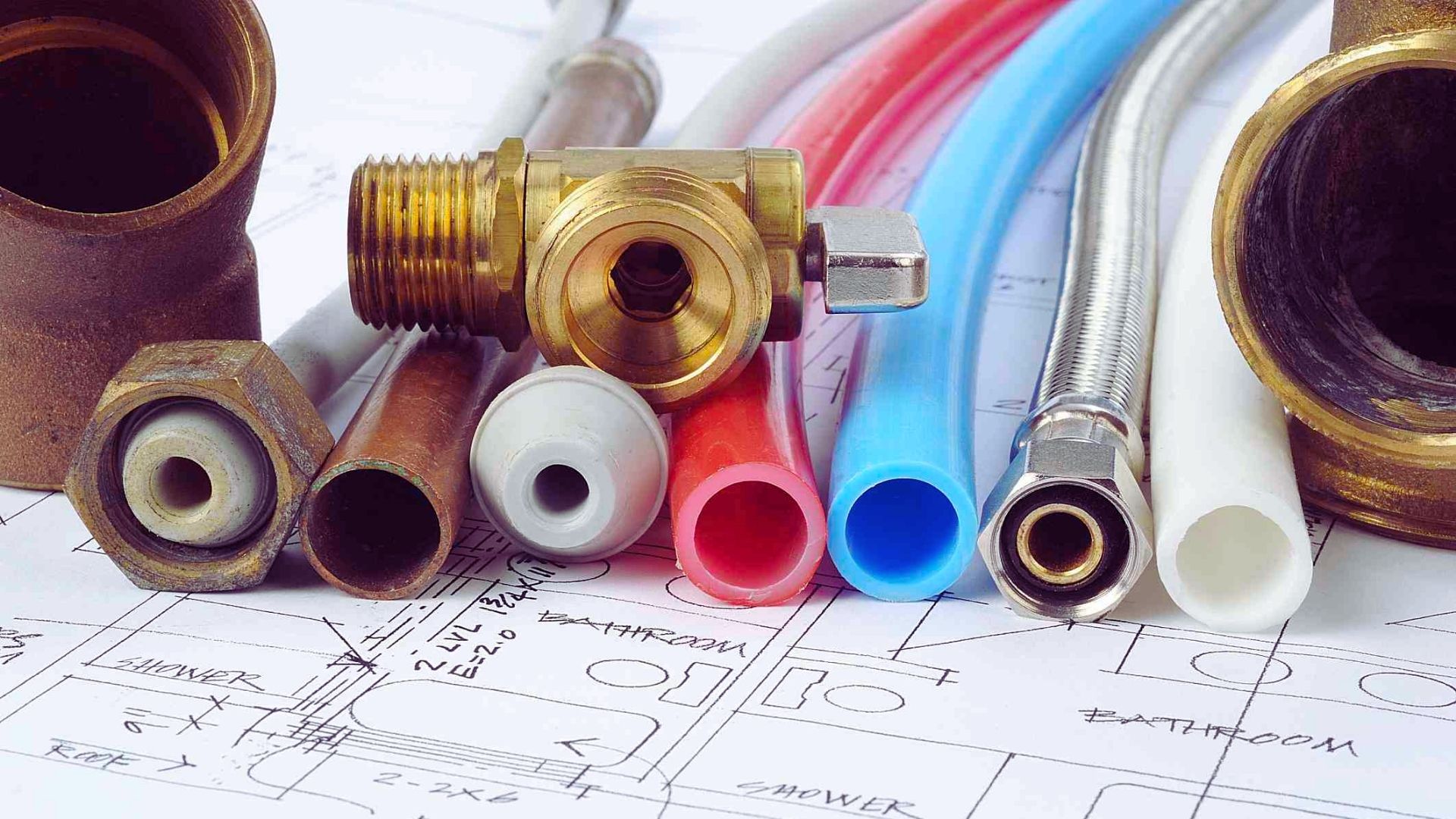
Plumbing is not just about water flow; it’s about ensuring the integrity and longevity of your home’s infrastructure. In this article, we’ll discuss the common types of residential plumbing pipes and the factors you should consider when choosing the right type of pipe for your project. We’ll also provide expert insights into various piping materials and their specific applications.
We’ll explore the historical significance of copper, PEX, PVC, and even galvanised pipes and equip you with the knowledge to choose the most suitable type of pipe for your needs.
Here, we explore the four leading contenders in residential plumbing: Copper Pipes, PEX Pipes, PVC Pipes, and Galvanised Pipes. Each has its characteristics, advantages, and considerations, making your decision essential.
These dependable pipes offer aesthetic appeal and are often preferred for visible plumbing installations. Copper’s inherent antimicrobial properties contribute to safer water quality, a critical concern for any home.
Copper pipes boast exceptional thermal conductivity, which is ideal for hot and cold water applications. This adaptability, combined with their longevity, makes copper pipes a popular choice for water supply lines.
Cross-linked polyethylene, or PEX, pipes have revolutionised plumbing with their flexibility and simple installation process. These pipes can bend around corners and obstacles without complex fittings, reducing the risk of leaks and minimising installation time.
PEX pipes are also highly resistant to freezing, making them suitable for cold climates. Their adaptability makes them a popular choice for retrofitting and repairs. However, it’s crucial to be mindful of potential exposure to UV light, as prolonged sunlight exposure can degrade the material.
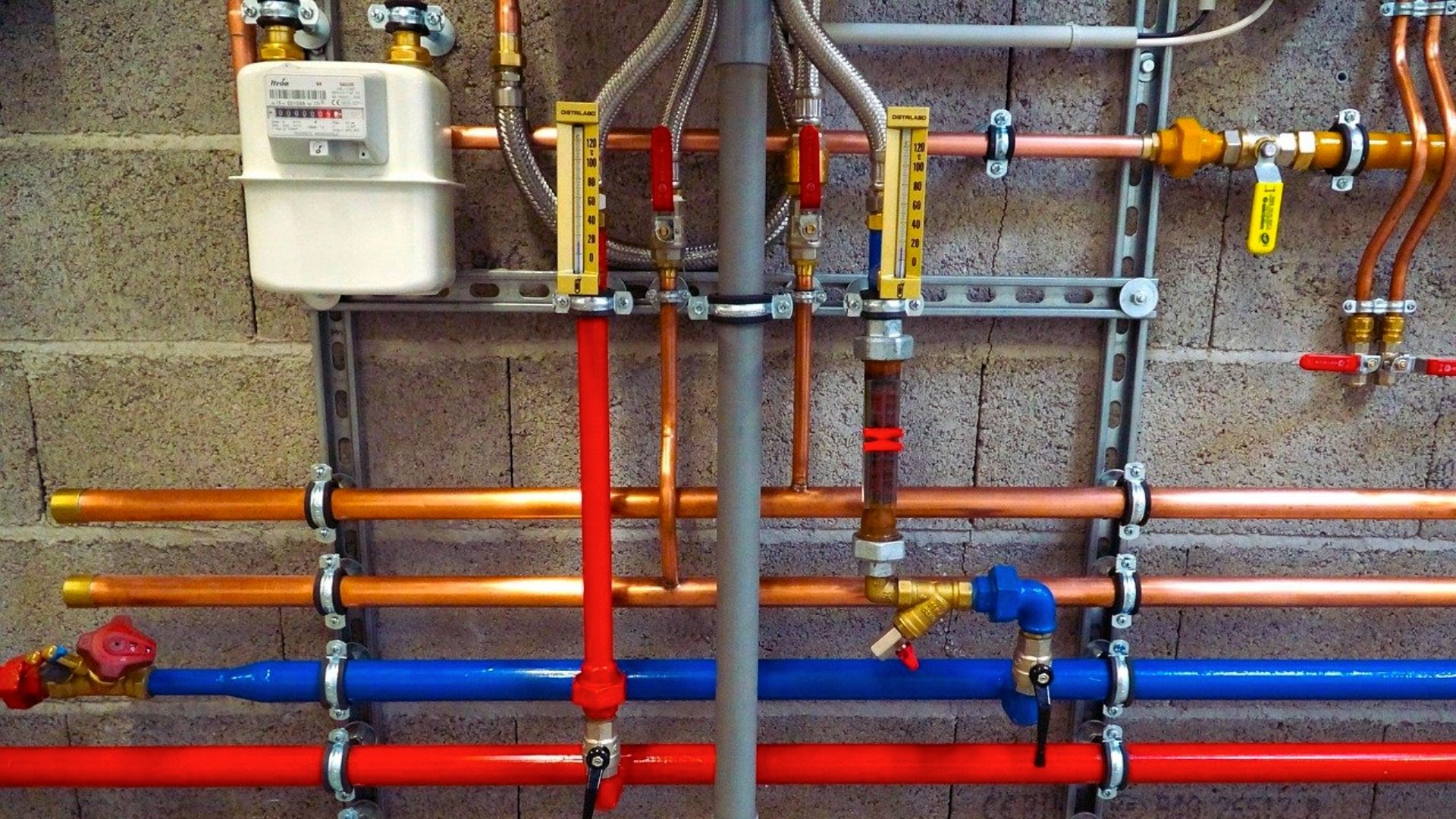
Polyvinyl chloride, or PVC, pipes are renowned for their affordability and versatility. Often employed for drainage and waste disposal systems, PVC pipes are lightweight and resistant to chemical corrosion. While unsuitable for hot water applications due to their lower heat tolerance, PVC pipes excel in scenarios where efficient transport of non-potable water is paramount.
PVC pipes are a staple in plumbing systems because they are easy to install and resistant to rust and corrosion. However, it’s important to note that they may not be the best choice for all scenarios, particularly when exposed to extreme temperatures or high-pressure conditions.
Galvanised pipes are steel pipes coated with zinc to protect against corrosion. They were historically used for water supply lines, but the introduction of newer materials has led to a decline in their usage.
It’s essential to approach galvanised pipes cautiously, as they have a limited lifespan compared to other materials. Corrosion over time can lead to reduced water flow and quality issues.
When considering galvanised pipes, it’s advisable to consult with professionals to determine whether they are suitable for your specific needs.
These pipes offer a range of advantages that make them an appealing selection for your Gold Coast home. Copper pipes are synonymous with durability, often surpassing the lifespan of other materials.
Their resistance to corrosion and rust translates to long-term cost savings and reduced maintenance requirements. Copper’s natural corrosion resistance is a substantial advantage, ensuring the integrity and safety of your water supply. This attribute is significant in regions like the Gold Coast, where environmental factors can impact plumbing systems.
Copper’s exceptional thermal conductivity facilitates efficient heat transfer, making these pipes suitable for hot and cold water applications. Copper pipes maintain consistent temperatures, whether you’re using them for warm taps or chilled water transport.
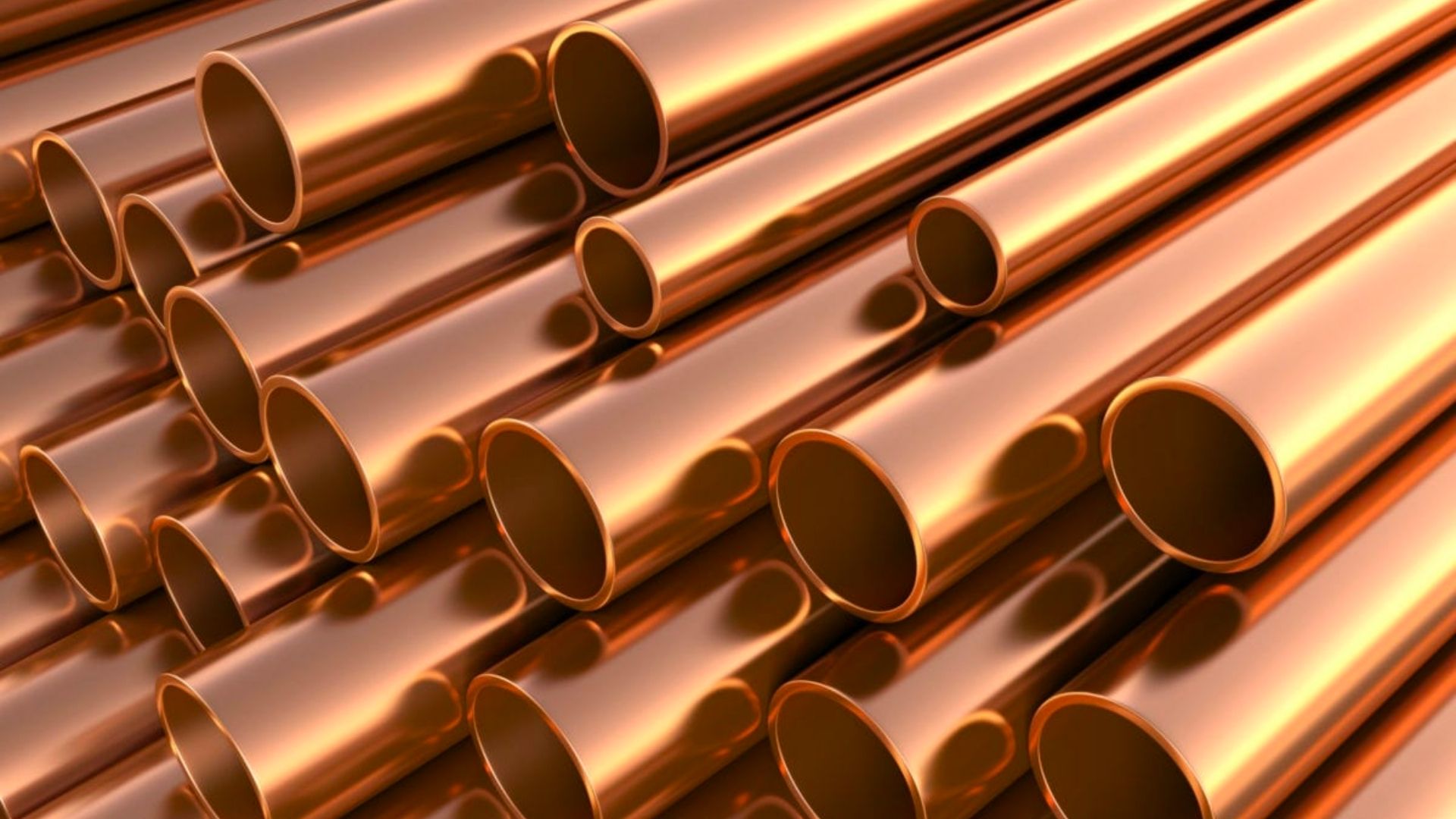 They also possess inherent antimicrobial properties that stifle the growth of harmful agents like bacteria and viruses. This quality promotes safer, healthier water quality—a paramount concern for any household.
They also possess inherent antimicrobial properties that stifle the growth of harmful agents like bacteria and viruses. This quality promotes safer, healthier water quality—a paramount concern for any household.
Beyond their practical function, copper pipes add an aesthetic dimension to plumbing installations. Their distinct warm colour brings a touch of elegance to visible plumbing elements, enhancing your home’s overall visual appeal.
Considering the benefits of copper pipes, it’s essential to weigh specific factors before deciding. While their initial cost might be higher than other materials, the long-term advantages often justify the investment. To ensure compatibility with copper pipes, consulting plumbing professionals is prudent, especially if your water has high acidity or alkalinity.
PEX pipes bring a new level of convenience and adaptability to modern plumbing systems. These pipes offer distinct advantages, making them a preferred choice for various applications.
PEX pipes excel in installation efficiency. Their flexibility allows easy bending around obstacles, reducing the need for complex fittings and joints. This translates to quicker installations and fewer opportunities for leaks.
When freezing conditions are a concern, PEX pipes shine. Their resistance to freezing and bursting makes them a reliable choice for regions with colder climates, providing peace of mind even in extreme weather.
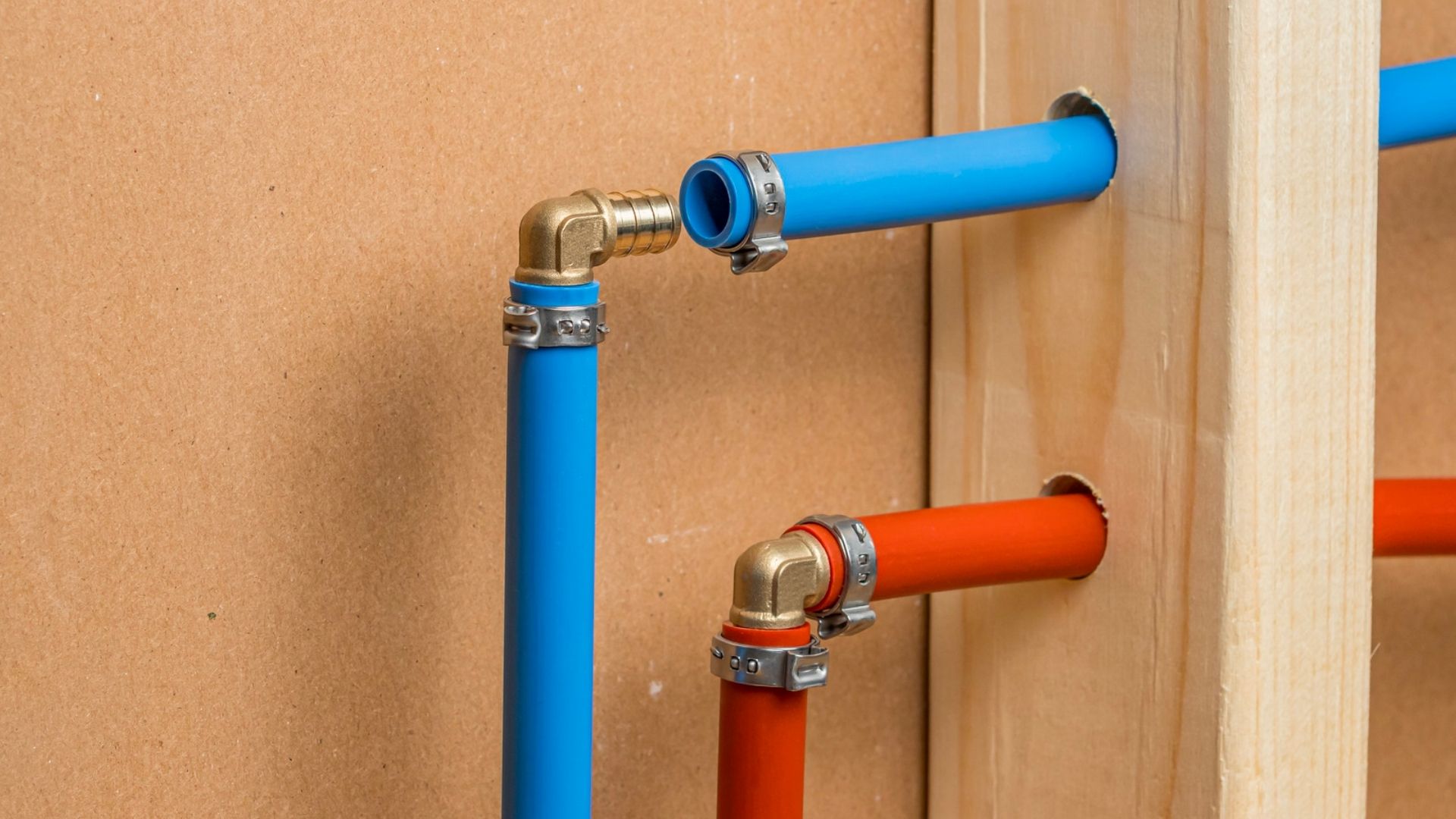 PEX pipes’ lightweight nature adds to their appeal. Their reduced weight simplifies handling and installation, especially when heavier materials are impractical.
PEX pipes’ lightweight nature adds to their appeal. Their reduced weight simplifies handling and installation, especially when heavier materials are impractical.
Another notable advantage is resistance to corrosion and scaling. PEX pipes maintain smooth interiors over time, promoting consistent water flow and minimising maintenance needs. They have become synonymous with durability.
A pex pipe’s flexibility mitigates the risk of cracks and leaks in rigid materials, enhancing their longevity.
PVC pipes offer a blend of affordability and versatility that appeals to various plumbing needs. However, like any option, they come with their own set of advantages and considerations.
PVC pipes are known for their cost-effectiveness. Their affordable price point makes them attractive, particularly for projects with budget constraints. Installation convenience is another critical benefit. The lightweight nature of PVC pipes simplifies handling and reduces labour costs during installation.
A noteworthy advantage is the resistance to corrosion and chemical degradation. PVC pipes maintain their structural integrity over time, minimising maintenance requirements. They are also excellent for non-potable water applications. Their suitability for drainage and waste disposal systems is well-established, making them reliable.
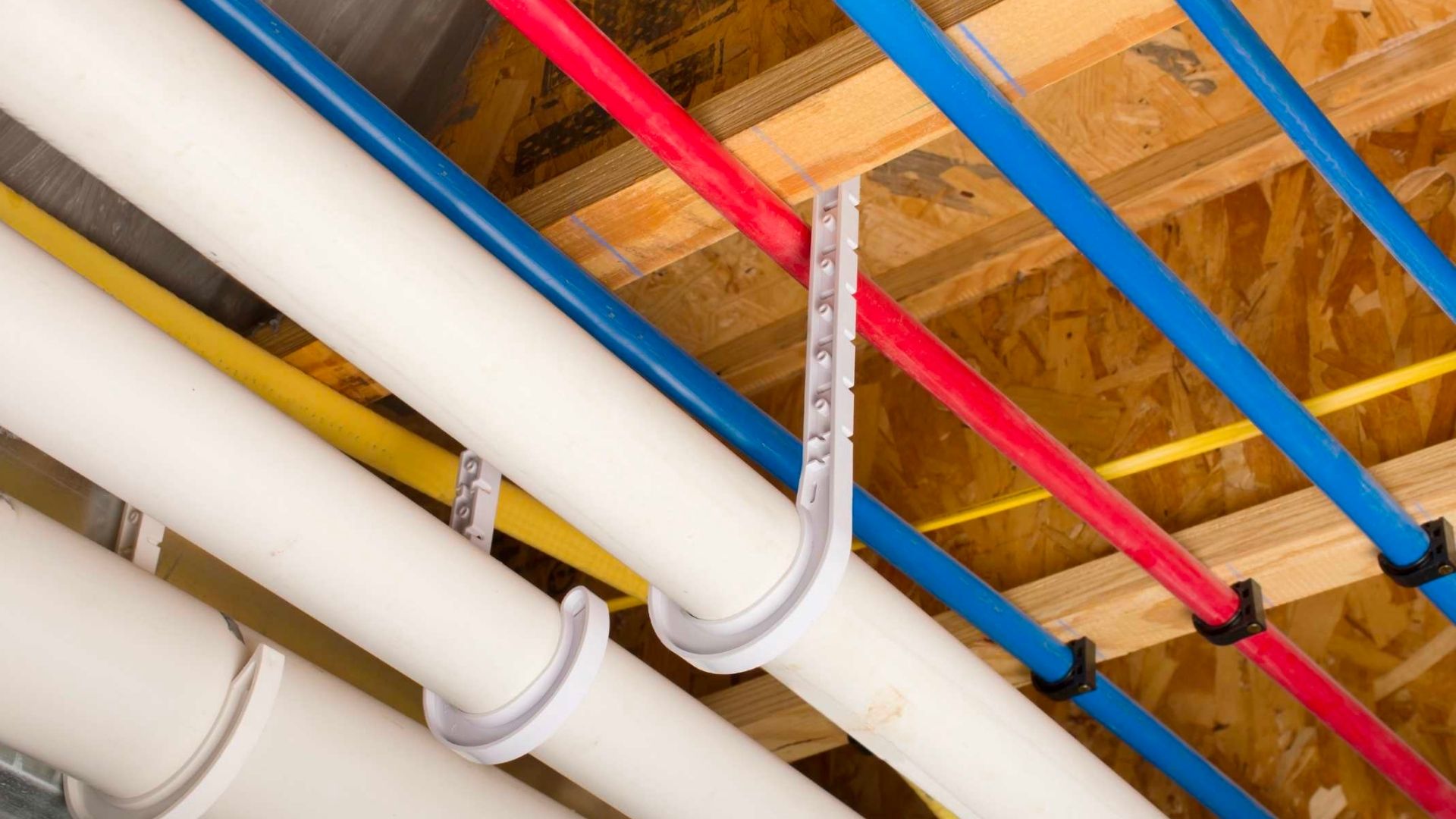
PVC pipes are not recommended for hot water applications due to their susceptibility to warping and deformation under high temperatures. Exposure to sunlight is a potential concern.
Prolonged exposure to UV light can lead to material degradation, affecting the pipes’ performance over time. While PVC pipes are versatile, they might not suit all scenarios. High-pressure situations or extreme temperature variations can challenge their structural integrity.
Galvanised pipes are coated with zinc to prevent corrosion, enhancing their durability and lifespan. Advantages include historical value, corrosion resistance, and maintaining water quality.
Challenges encompass limited lifespan due to rust and corrosion, requiring intricate maintenance and potentially reduced water flow. Considering galvanised pipes means balancing historical allure with practical limitations. Consulting professionals is crucial for informed decisions.
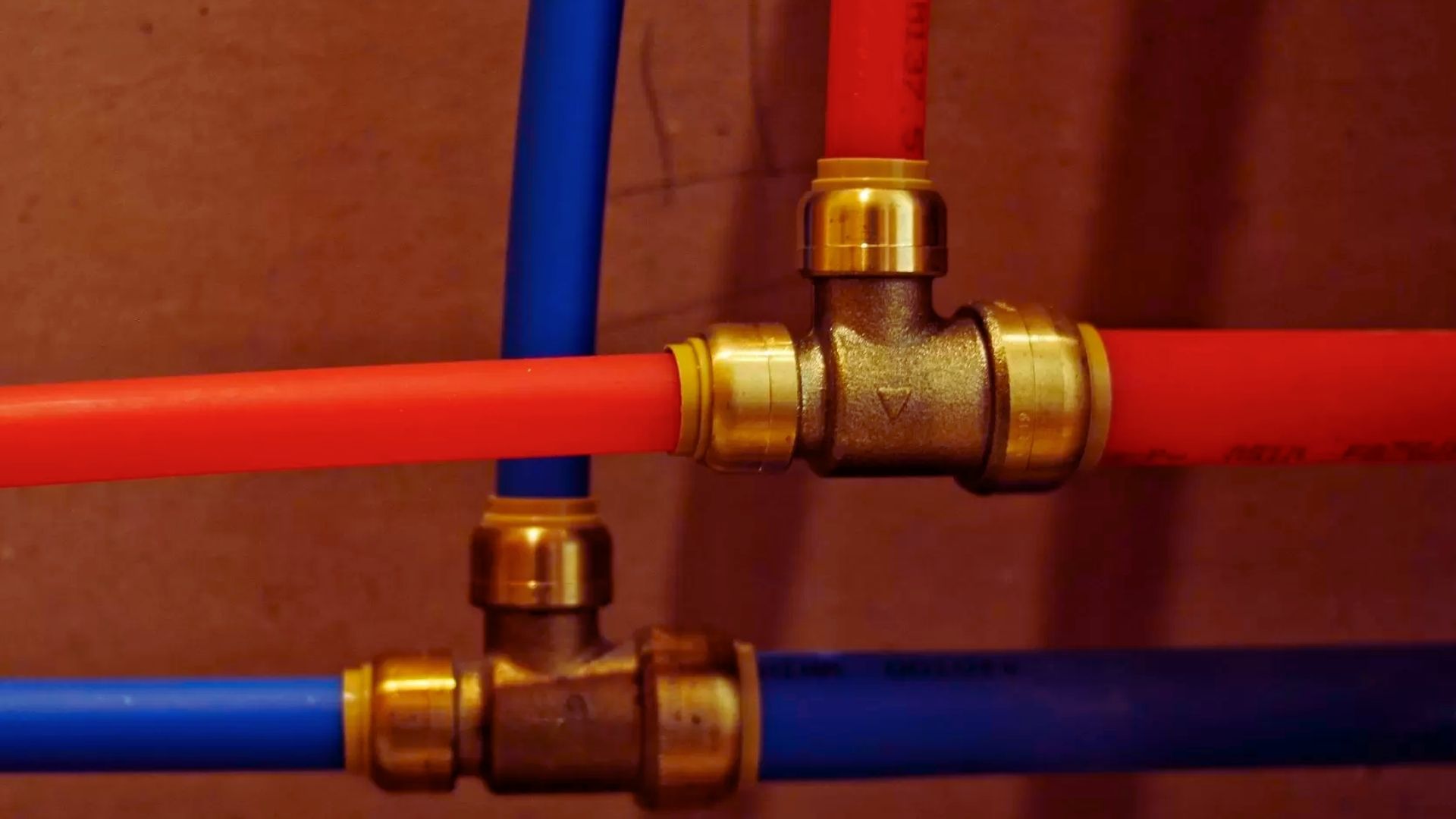
Choosing suitable pipes goes beyond material considerations; it involves matching pipes to specific applications within your residence.
Selecting the right pipes is a decision that requires balancing your needs, budget, and environmental consciousness. Whether you’re considering the durability of copper pipes, the versatility of PEX pipes, the affordability of PVC pipes, or the historical charm of galvanised pipes, your choice holds significance.
Remember that each home is unique, and the optimal plumbing solution depends on your circumstances. Consultation with plumbing professionals ensures that your chosen pipes align seamlessly with your residence requirements.
At Gold Coast Plumbing Company, we’re more than just a plumbing service – we’re your partners in making informed choices that enhance your home’s infrastructure. Our commitment to excellence extends to empowering you with knowledge, ensuring you’re equipped to navigate the complex world of plumbing options.
Reach out to us via email or phone for tailored assistance or inquiries. Your plumbing choices matter, and we’re dedicated to guiding you towards the best decisions for your home.